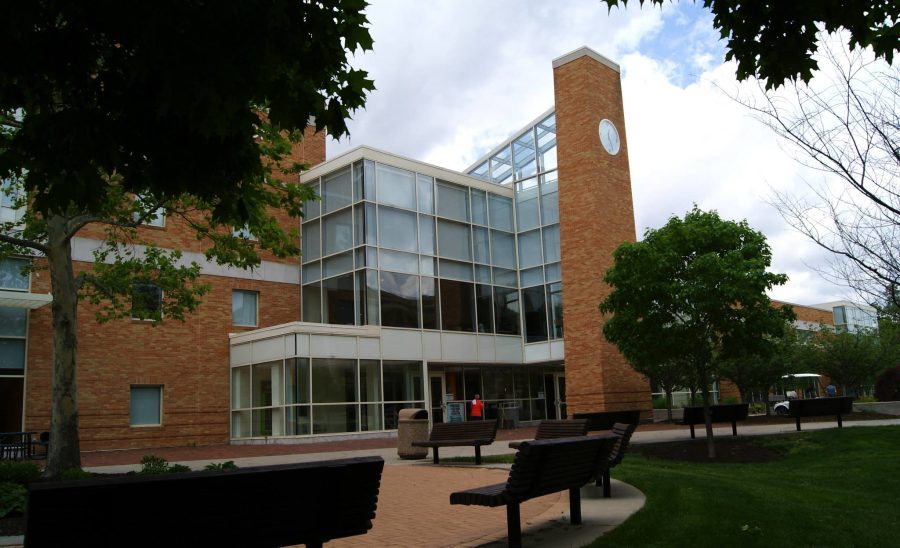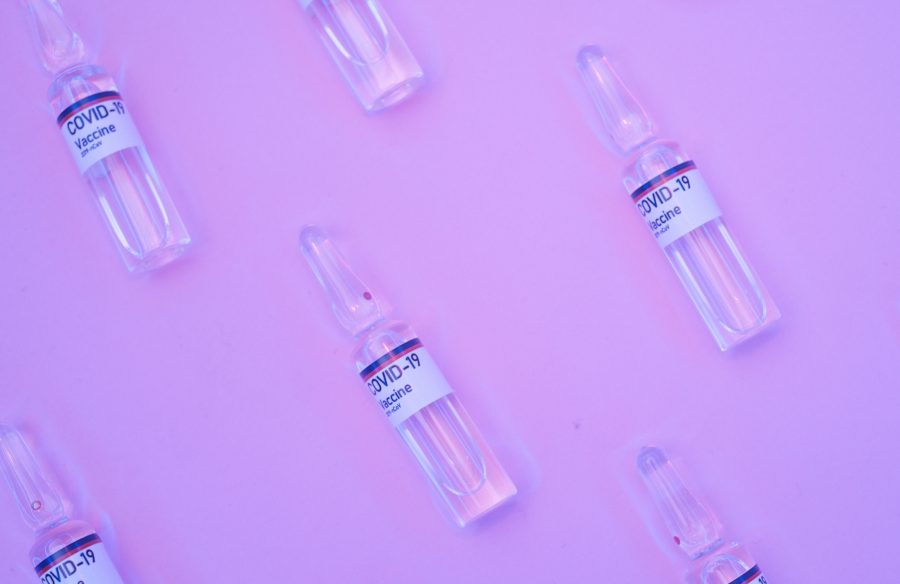Over the past several months, masks have become a daily use for many. While they may reduce the spread of COVID-19, they can cause something else to spread instead — acne.
The term ‘maskne’ comes from acne mechanica and is known as a skin condition that develops due to wearing a mask for long periods of time.
Dr. Sarah Stierman of Dermatology Associates, Inc. in Perrysburg, Ohio, wrote via email that maskne “is due to occlusion, friction, and the dirt/oil/sweat that can accumulate inside a face covering.”
Maskne can be compared to typical acne as it clogs the skin’s pores, but the difference is in how. Maskne is caused by the physical coverage of one’s face due to mask usage, causing pores to clog. Typical acne occurs during hormonal development.
The American Academy of Dermatology Association provides options on how to prevent maskne.
One of the main steps is to cleanse and moisturize your face daily. It is recommended to use fragrance-free cleansers and immediately apply moisturizer afterward to avoid dry skin.
Dr. Mona Gohara, an associate clinical professor of dermatology at the Yale School of Medicine, stressed carefulness to The New York Times when dealing with maskne.
She also recommends that the best spot treatment starts with over-the-counter benzoyl peroxide between 2.5% to 5% concentration, switching back and forth between the use of retinol if preferred.
Hyperpigmentation could occur due to the acne on black and brown skin, and a topical with glycolic acid is recommended to treat any discoloration.
Moisturizer with mineral-based, titanium dioxide or zinc oxide could help prevent further irritation.
Another tip is to avoid makeup when wearing a mask because it is more likely to clog pores and lead to breakouts. Instead, try turning to tinted moisturizer.
“Maskne is very similar to body acne acquired by leaving your sweaty workout clothes on for too long,” Stierman said. “Rinsing or wiping off is an easy way to combat maskne.”
BGSU sophomore Taylor Willis said her typical acne breakouts include spots around her chin, but with wearing a mask everyday, she has noticed the breakouts spreading higher onto her cheeks and under her nose.
“To avoid maskne I’ve been trying to avoid going to places where I have to wear it. I’ve been avoiding going to the grocery stores and working out in the gym so that I don’t have to wear them as much,” Willis said.
Wearing the right mask can also be beneficial in avoiding breakouts.
According to the A.A.D, “Avoid synthetic fabrics, such as nylon, polyester, and rayon on the layer that rests against your skin. These are more likely to irritate your skin and cause breakouts.”
The fit of the mask is crucial to the avoidance of maskne. A comfortable fitting, snug mask can reduce skin problems as it doesn’t rub against the sides of your face.
Taking a 15-minute mask break every four hours can also help prevent breakouts as the A.A.D says, “Health care workers on the frontlines of the coronavirus pandemic have found that this helps save their skin.
While washing masks is known by many, the A.A.D says the most beneficial way to do so is washing masks after each use while following the washing instructions with each mask, using hot water and fragrance-free, hypoallergenic laundry detergent.
According to an article in Yale Medicine, Dr. Sara Perkins, M.D., a Yale Medicine Dermatologist says that, “A breathable cotton mask that you launder regularly is ideal. If you need to wear your mask for long periods of time but can take a break from it for a little while, you can put it in a paper bag to let it dry out in between uses during the day.”
Maskne isn’t the only effect masks can have on skin. Some other face mask skin problems are:
– Folliculitis: which is when bacteria or yeast infect hair follicles.
– Seborrheic dermatitis: which is scaly plaques, stubborn dandruff and inflamed skin.
– Rosacea: caused by heat stress in which masks can increase flares.
– Allergic contact dermatitis: where manufactured masks may have a chemical that causes allergic reaction.




















